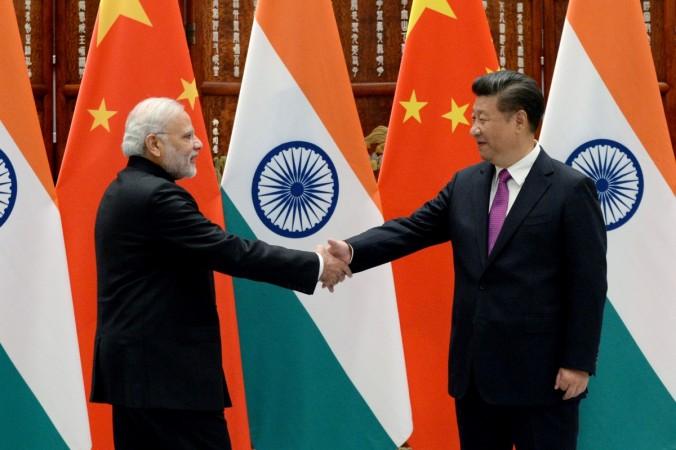![[Representational image] India-China ties](https://data1.ibtimes.co.in/en/full/639129/india-china-ties.jpg?w=649&h=399&l=50&t=40)
The United States has made an abrupt shift in its stance towards the One Belt, One Road (OBOR) initiative organised by China, and has decided to participate in it. The move has put tremendous pressure on India, which is still undecided about the event.
India has not yet confirmed its participation, citing lack of a trustworthy environment on China's part to carry out belt and road projects. India's participation would require the country to send its representatives to the event.
OBOR is a development strategy proposed by Chinese President Xi Jinping, which focuses on connectivity and cooperation among countries between China and the rest of Eurasia, encompassing around 60 of them. The strategy consists of two components: land-based 'Silk Road Economic Belt' (SREB) and oceangoing 'Maritime Silk Road' (MSR).
Beijing, in its initiative, has shown blatant disregard for India's sovereignty. China is looking to link Xinjiang with Gwadar port through the China-Pakistan Economic Corridor. The port is built in Balochistan and the route passes through the Gilgit-Baltistan region which India claims as its own.
If India does not participate in the OBOR, there may not be any immediate material loss to the country, as the initiative is not a membership-based organisation. According to officials in New Delhi, India may be represented at the event but only by junior embassy officials. Participation of high-level dignitaries at the event has been ruled out, according to Times of India.

Reports state that a few academicians from India may also be present at the Chinese event, which will also see representations from international organisations like the World Bank.
Although participation in the initiative is a political decision, the US has made a trade-off with China for its participation. This includes China's commitment to buy American beef as part of the '100-day plan' agreement, according to reports.
Countries which have military differences with China, like Japan and South Korea, are also sending their representatives at the event. Many countries who are currently engaged in territorial disputes with China over the South China Sea issue, including Vietnam and Indonesia, are also sending official delegations.
Reports state that neighbouring countries, including Pakistan, Nepal and China, are also participating in the event. At least 29 countries are scheduled to be represented by their heads of state at the event.
The US is scheduled to send an inter-agency delegation led by Matthew Pottinger, a top adviser to the Trump administration and National Security Council senior director for East Asia. This is being seen as Trump administration's attempt of reframing the US-China relationship.
















